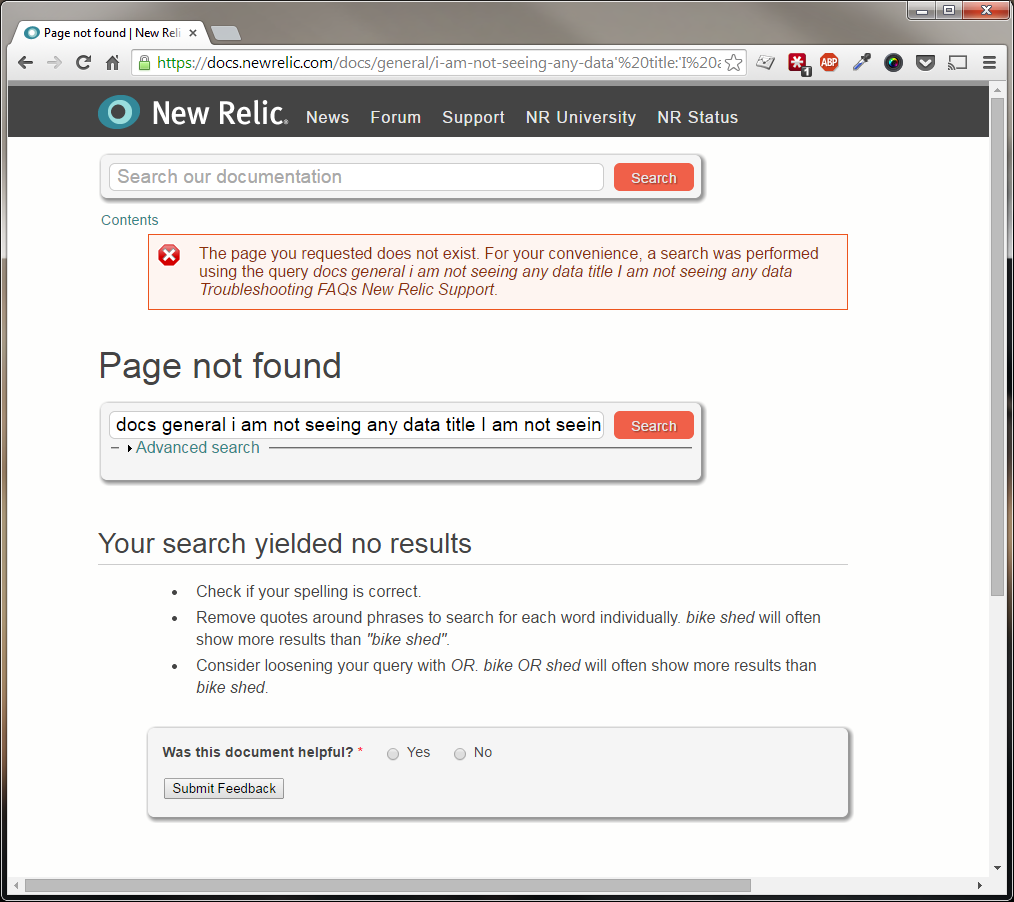One of the things I take great pride in is my attention to detail. In fact, details are one of my favorite things. Details are important because that is how you can immediately tell the quality of something. Details will tell you if someone took care in producing it. If this is a service and they took care in producing their service, you can bet money they will take care of you.
But what seems to constantly frustrate me is large, successful companies, that pay seemingly no attention to detail and get away with it just fine. Some of the things aren’t even details; they’re basic features that blatantly don’t work. How could you do that to your customers? Why are you still wildly successful?
New Relic
I think New Relic is an awesome company that is doing cool things and is building a useful product. But here’s what gets me.
See those “troubleshoot” links?
They don’t work.
Verizon Wireless
The new pretty iPhone 6 came out recently. I had the pleasure of trying to order my mother one, through their website, using an iPad. It was extremely difficult. It was not responsive. It took seven tries to select the phone on the account that I was replacing, which required numerous portrait/landscape flips. While checking out, you can use whatever credit card you would like to pay, but it won’t allow you change the name of the person being billed (in this case, was not the card holder). Later it asks if everything is correct. No, the billing address is correct, but not the name on the card. Well, you can’t change it. Fine. But at the actual checkout screen, the “checkout” button is missing. How is this possible? How do I continue? Change to landscape orientation. Oh, it appears now.
This makes me think, how many people gave up or simply couldn’t figure it out? How much business did you lose by not thinking of people trying to order through a tablet device? But obviously Verizon Wireless is very successful. Does this mean you don’t need to be good, or even “good enough” to be successful? Worse, is it required?
Ticketmaster
This was a few months ago, so maybe it has been fixed. I bought tickets to a concert using Firefox. However when you go to print the tickets, which (attempts) to send a PDF to your browser, it downloads it as an extension-less file. How many people couldn’t print out their tickets? How many people didn’t know enough that if you rename it with .pdf, it would be able to open?
How many times while using Facebook, do you suddenly get placed into a cannon and shot to the top of the page, losing what you were just looking at? This happens often to me, on both the website and the mobile app. While I am using the app, I am rudely interrupted and thrown to a different place like a terrible game of snakes and ladders. Twitter does this too. Granted, this probably a difficult problem to solve. But every time you make your users angry, you just lost some points. Lost points results in less loyalty.
Am I wrong?
This is where I wonder if I’m doing it wrong by making sure such mistakes aren’t made. If I provided a link in a web application that didn’t work or send the client to a bogus page, I would first be very embarrassed and then I would fix it immediately. Why don’t they? I do probably spend more time on things than others. Maybe you can call it perfectionism. Maybe perfectionism is bad for business. But not paying attention to detail feels lazy. When your customers let you know of a problem, it shouldn’t take 4 weeks to never to resolve it. If it does, it shows you don’t care and you will lose their business. I greatly enjoy detail and I’m not going to stop doing my best to prevent mistakes and creating the best user experience on any project I am a part of.

